|
Yes, I know...I've been a bad boy. Or at least a poor social media participant. Guilty! But that doesn't mean that I (Evan) don't care. I think I speak for Little Fyodor (and, of course, Mr. Ed Fowler) on this. Those of you who know me recognize that I am a slightly less-than-hopeless Luddite. Anyway... I recently entered the 21st Century with faster internet which made it immensely easier to upload lengthy music tracks online. And thus, I am happy to announce the release of previously un-re-released Walls of Genius material from 1983. Two titles 'complete' the Raw Sewage series, Johnny Rocco and Mars Needs Women. This prompted one of those existential discussions that have both graced and plagued Walls Of Genius from the beginning. That discussion appears below... meanwhile, both titles are streamable and downloadable as wav files from Bandcamp:
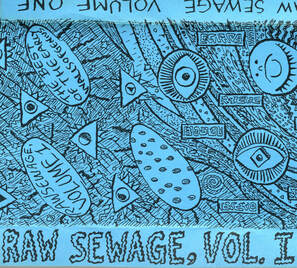
Back in 2004, Little Fyodor set about re-issuing a pair of 1985 Walls Of Genius titles, “Raw Sewage” volumes 1 and 2. The 1985 Raw Sewage series were themselves re-issues of material from 1983, before there was a Walls Of Genius per se. The track "Johnny Rocco" was, and still is, credited to the group "Ed'n'Evan", a fine example of what went on at Ed's place after numerous drinks and bong hits. (Original cassette cover appears to the left) When Little Fyodor re-issued those first Raw Sewage titles, he experienced some preference in "WoG consumer-land" for the original releases as opposed to compilations. How this might apply to online releases as opposed to physical releases, nobody really knew then (2004) and certainly not now either, and he didn’t speculate any further. Unknown to me until reported by Little Fyodor in late 2021, he experienced some rejection of the reconfigured releases from listeners who discovered they wouldn't be getting the "original" release.
Which begs the question...Re-issue versus original? The question had never come up with me, so I had not bothered to ever consider it. When Little Fyodor re-issued re-formatted versions of the “Raw Sewage” cassettes, we never even discussed it. But it is a fascinating conundrum (for those few of us who care) and worthy of discussion. We had compiled two “Raw Sewage” cassettes back in the day, so even those “original” releases were re-releases of earlier material. The Raw Sewage versions that Little Fyodor digitized and released in 2004, Vol 1 and Vol 2, on CDR, were not identical to the original Raw Sewage cassettes. Little Fyodor had made editorial decisions to include certain tracks and delete others. I found his judgment in such matters, as usual, sound. But why prefer an ‘original release’ to a re-released compilation? Firstly, if you were a fan of something many years ago and now that something has become again available, you’d like to hear it as you remembered it. Of course, memory is often unreliable. As a child, I regarded “The Lucy Show” and “The Beverly Hillbillies” as hilarious while now, fifty or more years later, thirty seconds of either makes me cringe. The first time I saw Neil Young in concert (1976), it was a revelatory experience on acid. Seeing him again in 2013 was just disappointing by comparison. So if someone remembered the early cassette releases of Walls Of Genius from 1983 and wanted to experience that music as it was released at the time, that’s entirely understandable. (It is all available at the WoG Archive on haltapes.com) On the other hand, all creators have a vested interest in the quality of material they have released and often look back with dismay at material that we no longer feel is as strong as our best efforts. A friend of mine once gave me a cassette of his early material (Basement Tapes, right!). Later, he wanted me to give it back as his work became more sophisticated. Fat chance! Once you give it away, it’s out there like angry words you cannot un-speak. But a lucky few can go back and edit the material. WoG's original cassettes, as released, are still out there in the world (and many are available on-line, more about that later). At the moment of creation, in 1983 for Walls Of Genius, we were in love with almost everything we did. But even those early cassettes were compiled from a larger pile of material, not all of it deemed appropriate for release to our public. Or simply put, not good enough, perhaps cringe inducing. This from a bunch of self ordained ministers of the absurd, a band that never shied away from making a listener cringe. What could possibly make us cringe? Like anybody, we could recognize our best material. 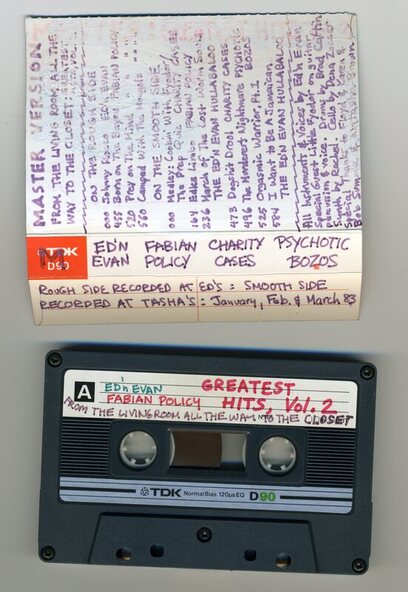
To the right is the "original master cassette" of what was later called "Johnny Rocco". Below you will find the original "Dirt Clods" cassette.
Clearly the original titles in their complete configurations are more authentic, genuine or whatever, loyal both to the times and the people involved. Speaking of the times, we were releasing hour-and-a-half collections of almost everything we had. As for the online titles on bandcamp, the original releases are all there in-situ back through “the white cassette”, including the full “Ludovico Treatment” and “Crazed To The Core”. The hour-and-a-half programs ended up getting “albumized” as double-CDRs. This is not a problem online, because you can have as long a program as you like. Prior to the “white cassette”, there were 13 Walls of Genius cassettes, two of which were Architects Office titles, two of which were Rumours Of Marriage collections (the band that featured Evan Cantor and Ed Fowler prior to WoG) and one of which was “The WoG Sampler”, yet another re-release of earlier unreleased material, leaving 7 bonafide Walls Of Genius cassette titles. Why not simply release them all online in situ, as they were originally? Looking back with dismay is not necessarily the only reason to re-formulate the programs. The reasons ‘why not’ are the other considerations.
When most album releases in the 80s were averaging about 40 minutes or so per vinyl platter, we were doing 90-minute cassette programs. It’s because we had the material, we were clearly in love with it and we could. The 90-minute cassettes weren’t significantly more expensive than the 60-minute tapes and, as I recall, 30-minute tapes were either rare and not so easy to find or we thought the program too short. The first cassette collections (“the Dirt Clods” tape and “From The Livingroom All The Way To The Closet, Vol 2”, see image above) were just a way to assemble what we had recorded partying in the living room. As we coalesced into Walls Of Genius, we simply kept on with the 90-minute tapes. Later on, I discovered that I could get 45-minute cassettes by mail-order and when we changed to that format, we enjoyed a great deal more success in our efforts. It was obvious that listeners preferred 45-minute cassettes to 90-minute ones. It is arguably easier to digest 45 minutes of Walls Of Genius than 90. We returned to the 90-minute format for the Madness compilations because there was such an enormous response. So—when making new music in the 21st century, we have limited ourselves to the CDR album-size time limit, up to about 1 hour of music or less. It’s a ‘convention’ only because no hard copy releases are being made available. We’re not attempting mass home production like we did with cassettes in the 80s. Are we old and tired? Maybe. I wouldn't deny it.
Adhering to this convention, we found the individual tracks ‘Johnny Rocco’ and ‘Mars Needs Women’ too long to include on the three 'new' Raw Sewage releases. Both were clearly worthy of re-release into the world as were a few extra tracks that never made it on to volumes 1,2, and 3. So the release of these two titles and those extra tracks could have been effectively titled volumes 4 and 5 of “Raw Sewage”. But I felt that it would more easily identify the two additional volumes by giving them the eponymous titles of the lengthy title tracks. 
Another question worth answering is this: with 5 volumes of re-released material, why not just digitize entirely those 7 bonafide original titles? One reason ‘why not’ is that a fair number of the tracks from those 7 early programs had already been released on ‘Raw Sewage’ one, two and three. Presumably it was the strongest material from that period. My notes from 2016 indicated the two really long pieces with a few choice tracks still worthy of re-release. Then there is editorial discipline. Seven 90-minute programs have been boiled down to five 60-minute (or less) programs. This is some serious quality control! We had almost NO discipline in 1983, although we thought we did. So both of the new titles, “Johnny Rocco” and “Mars Needs Women” include those longer pieces, plus a few other tracks that were outstanding.
Ultimately I find this a question of ‘how can you please everybody’? Well, you can’t, never could and never will. It should be obvious by now that Walls Of Genius was ‘equally loved and reviled’ during the 1980’s heyday of the cassette culture. Should we worry about whether or not these re-releases will please an originalist? I would point the originalist to Haltapes.com, where a completist Walls Of Genius archive (courtesy of Hal McGee) includes every title in its original configuration.
1 Comment
|
Archives
January 2022
|
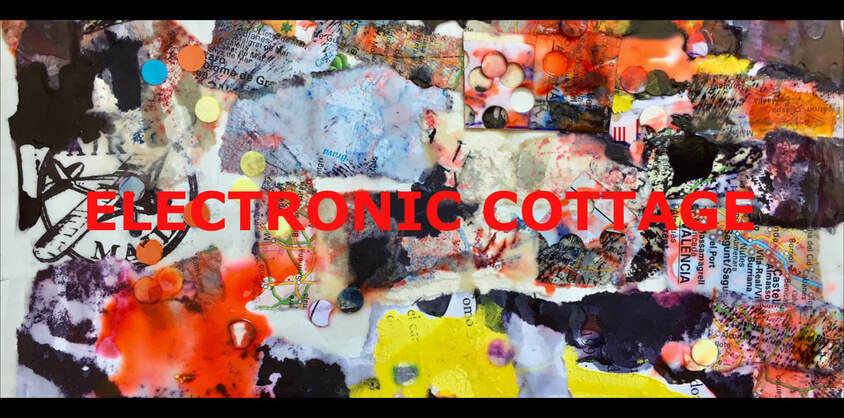
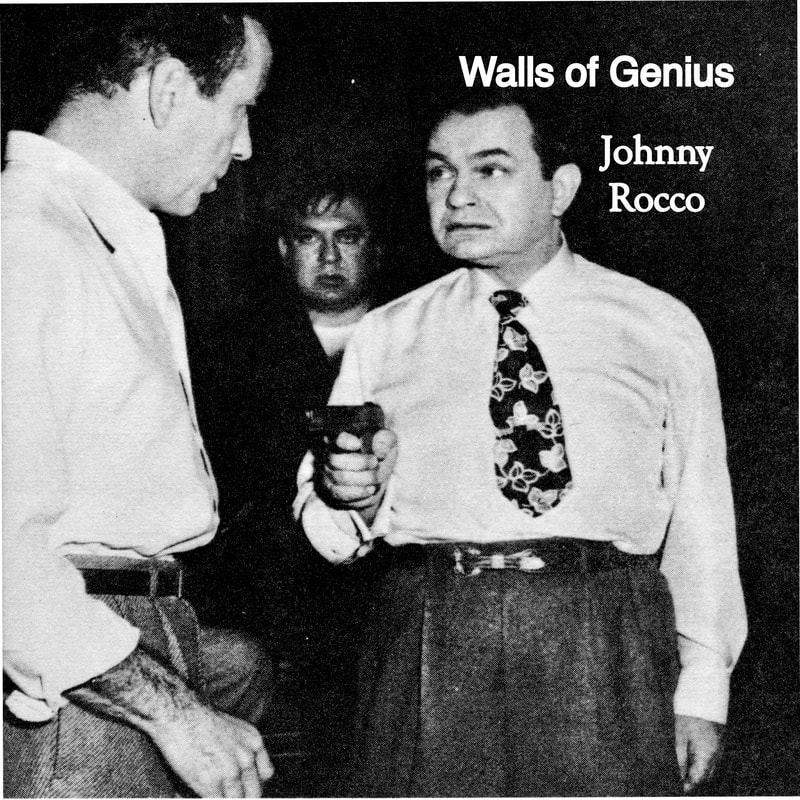
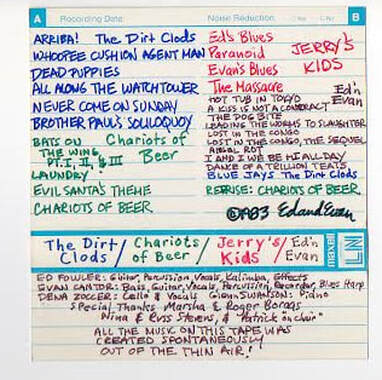
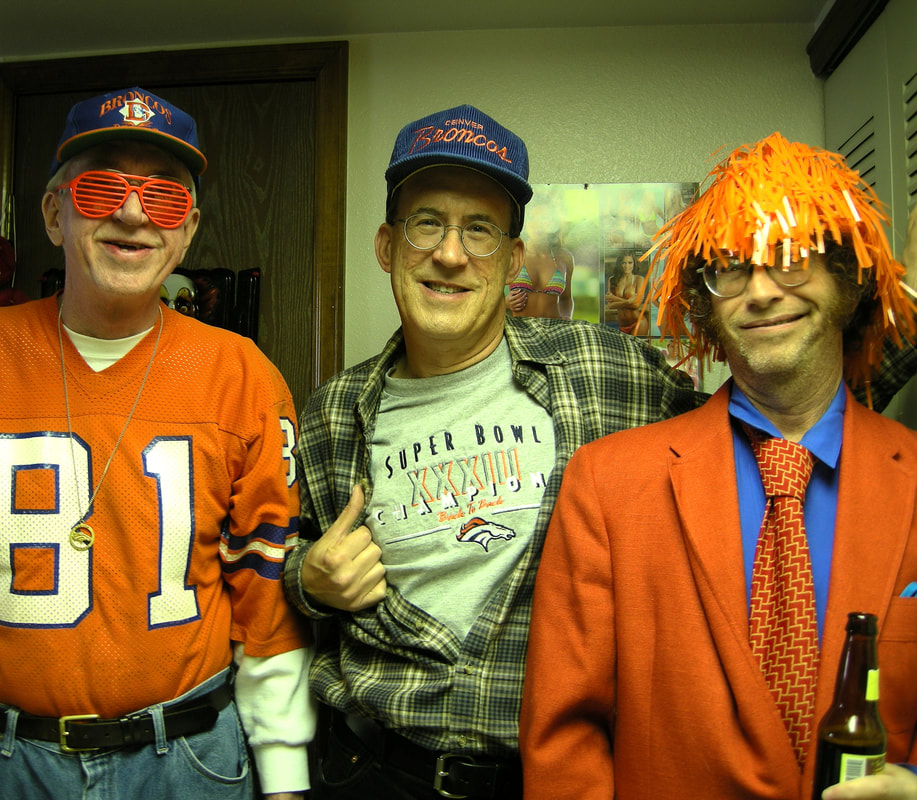
 RSS Feed
RSS Feed